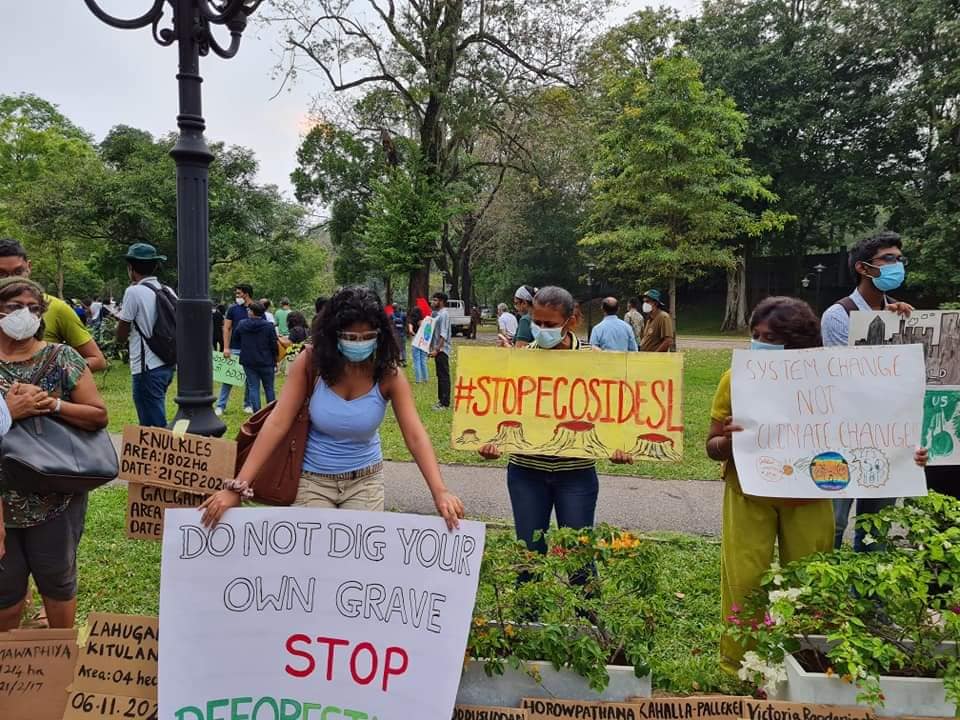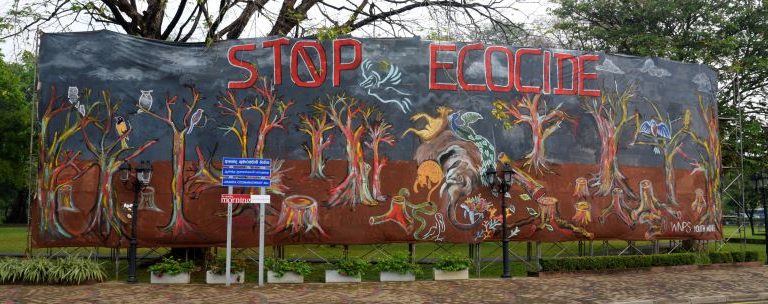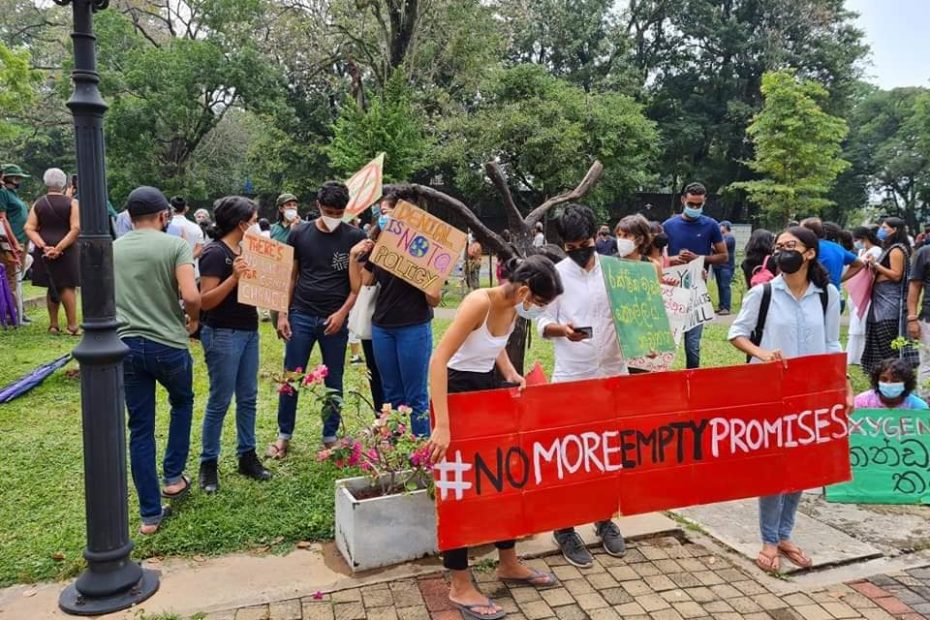In the year 2021 Policy Planning and Monitoring Division of the Ministry of Environment sought public comments on a draft National Environment Policy. Mobility Alliance has submitted our suggestions/amendments to the policy, for which we received no update of the establishment.
Public Comments on the National Environment Policy 2021
Mobility Alliance principal consultant, Sujeeva Premaratne has submitted the following to be considered under Sustainable Mobility, which needs to be a primary factor of the National Environmental Policy. It is to be noted that Transport-related pollution has not been given due recognition and quantification.
Some of the following suggestions may be visible as action. However, a National Policy and its objectives will need key action specified, quantified, and justified. Not only in the mobility-related environment, but this may also need to be reflected in all sections we believe.
If not, at some point the most important areas in reaching the objectives may dilute. An example from the sector is although we have the VET fund, it’s now operating under a court ruling with way outdated standards. Furthermore, it is still a grey area the fund has been utilized for the intended objectives.
Additionally, the proposed National Policy (NEP) may include specific timelines as well in delivering its quantified action and objectives.

Following are the concerns raised by Mobility Alliance on the Pollution of Transportation, towards Sustainable Mobility.
3.2. Polluter pay, beneficiary pay, and compensation.
Fuel-based vehicles/modes of transport contribute to a vast amount of pollution and the proposed carbon tax has been abolished. The country spends LKR 1000 BN Rupees a year on the import of fossil fuels whereas over 60% of it goes towards transportation. https://mobility.lk/2021/04/21/transport-economy/
It is an established fact that fuel-powered vehicles are polluting the environment in many ways, Emissions, GHG, Particular matter, Noise, etc.
Suggestions:
- To recognize Fuel Based Transportation as a major polluter in applying PPP.
- Established action to capture data on fuel-based air pollution and its impact on society.
3.3. Life cycle, circular economy, and 3R
NEP elaborates on 5R (refuse, reduce, reuse, repurpose, recycle) and 7R (rethink, refuse, reduce, reuse, repair, regift, recycle) as well.
But no data on the existing polluters are available to improve these scenarios.
Suggestions:
Establish data collection and management of all polluting substances.
- Data of imported and locally made lubricating oil and quantity recycled/dumped.
- Data of imported hybrid batteries (mostly Ni-Cd) with vehicles and as spare parts as there’s no reuse at all. Amount of batteries recycled without dumpling into the ground.
- Data of pure Electric batteries (mostly Li-ion) and the amount of reuse and then for final recycling. (EV battery life cycle is about 20 years it’s been established.
3.6. Rewards, stewardship, and reciprocity
Suggestion:
To consider methodologies to reward people who use non-motorized transport (Bicycles) as in other countries.
3.7. Equity, inclusiveness, and no one left behind
Currently, the infrastructure built for non-motorized and environment-friendly transport is at a bare minimum. No stern action on providing safe roads to cyclists who travel to work. (Not leisure and exercise).
Suggestion:
To act strongly to build cycling infrastructure which will be a greater benefit to the economy via both transportation and health sectors.
4.4.1.3. Management of atmospheric pollution
Excerpt from NEP – “Air pollution due to emissions from mobile sources (i.e., transport emissions) will be reduced by adopting a multi-pronged stately comprised of measures including but not limited to improving the vehicle emissions testing (VET) program, encouraging the use of environment-friendly transport modes, reducing private transport by improving public transport facilities, controlling traffic congestions, adopting demand management measures to reduce transport needs, introducing intelligent transport systems, increasing the quality of fuel used in vehicles and promoting hybrid and electric vehicles through an appropriate incentive scheme.”
There are several concerns about the above clause.
- Current VET standards are way outdated
- No information on the use of the VET fund toward its objectives.
- The world is phasing out the use of Hybrid vehicles. But the NEP erroneously mentions promoting hybrids.
Suggestions:
- To revise and reestablish the VET fund, delivering results along with specific timelines.
- To publish the data on the utilization of the VET fund.
- Remove the word HYBRID completely from the last sentence.
- Policy to identify the components to move Sri Lanka towards its EV goal, towards 100% electrification of transport. These may include Infrastructure, Taxation, Incentives, etc.
4.5.1.6. Climate change: adaptation, mitigation and loss, and damage
The section says “Measures for reduction of GHG emissions will be selected so as to maximize co-benefits such as improvement of environmental quality, increased energy security, food security reduced dependency on imported fossil fuels, and enhanced health benefits by promoting options that include but are not limited to;”
Suggestions:
To include specific measures to formulate under each of your identified areas under the clause.
- Improving energy efficiency – Improve VET standard. To scrap aged vehicles https://mobility.lk/2020/02/15/scrap-program/
- Renewable energy- To document and facilitate the 80% renewable energy target by 2030 policy of the Presidents mandate “The Vistas of Prosperity and Splendor – 2019
- Integrated transport solutions – To mention prime action area, Micromobility!
- Low and zero-emission vehicles – The push for policy changes.
——————————————————————————————————————————-
About Mobility Alliance Lead Consultant – Sujeeva Premaratne.
Sujeeva was attached to global automotive franchises including Toyota & Ford. Headed several automotive organizations in Sri Lanka.
He presently works as a mobility consultant for Mobility Alliance, optimizing the costs, efficiency, and productivity of the corporate sector.
Sujeeva actively engaged with the Electric Vehicle Club of Sri Lanka and Ride for life Sri Lanka, a professional movement for using bicycles as a mode of mobility.
The website www.mobility.lk has a daily hit rate of over 100 views. Also, we are social media activists on Sustainable Mobility, Cycling to Work, EVs, and transport energy.
You may reach Sujeeva on 0777 007139 and via email: sujeeva@mobility.lk

